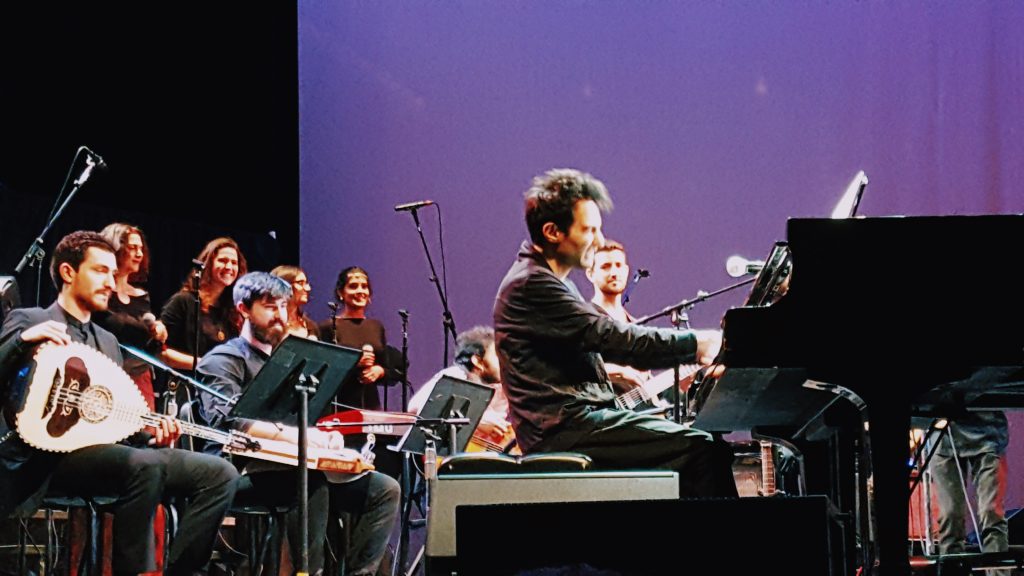Special for the Armenian Weekly
I learned about the genius of Tigran Hamasyan halfway through my time at Berklee College of Music. I knew of him before, of course. As Armenians, we know when fellow compatriots are doing great things. I knew there was an Armenian pianist, who much like my father David Azarian, was causing ripples in the American jazz scene. However, what I didn’t expect is to find was the musicians I admired so much at school in practice rooms picking apart, analyzing, and learning his music.
Tigran Hamasyan fuses together genres of music in a way I had never before imagined possible. As a classically trained pianist learning his pieces for the first time, did I imagine I would go from playing Armenian folk melodies to head-banging metal riffs? (The answer is no)
The reason I pursued music is because of the emotional impact it has on me, and Tigran’s music has a profound emotional effect on anyone who listens it. And when I look at the other students in my ensemble, who come from literally all across the globe, this remains true. His music transcends geography and background, and to put it lightly, changes lives.
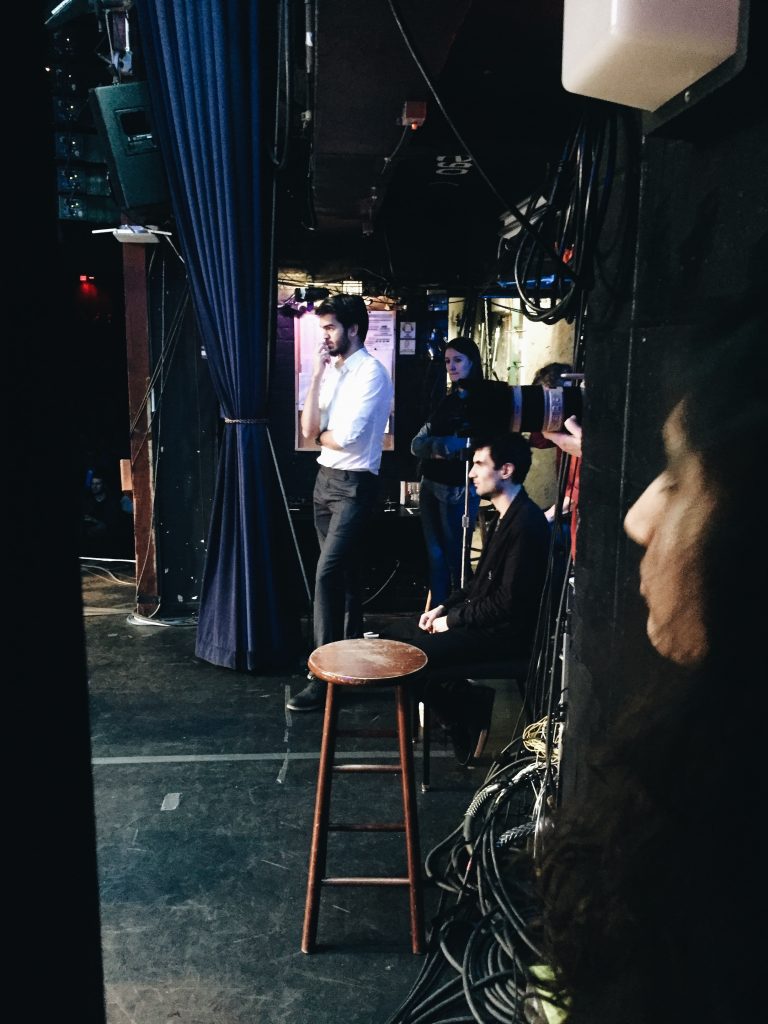
‘The reason I pursued music is because of the emotional impact it has on me, and Tigran’s music has a profound emotional effect on anyone who listens it.’ (Photo: Christina Azarian)
When Christiane Karam, the director of the Berklee Middle Eastern Fusion Ensemble, told us that we would be hosting Tigran on campus for the next Middle Eastern Festival, we were beside ourselves with excitement. We spent the next three months in intensive late night rehearsals, transcribing, arranging, and learning the ins and outs of his pieces—not an easy feat. I am proud to say that the group of students we had are the most talented musicians I have ever had the honor of playing with. Every person brought another strength to the table, and this show would not be what it was without the work everyone put in. While we spent most of our time this semester in rehearsals, we were still nervous about the fact that we would essentially have one rehearsal with Tigran before the show… one.
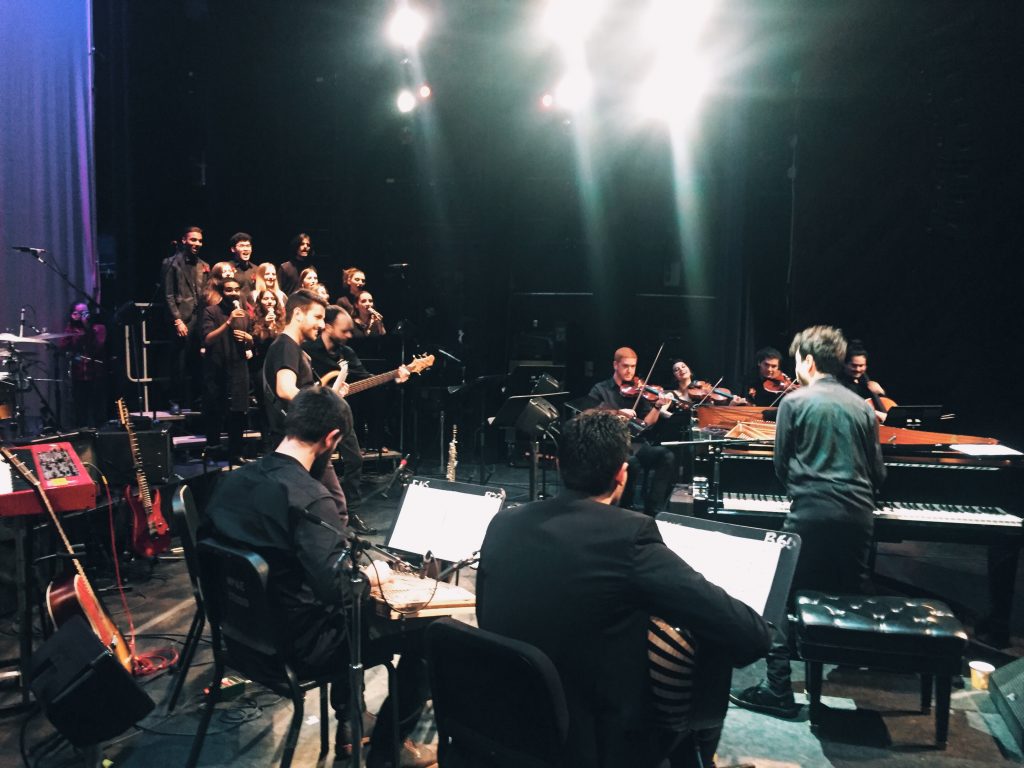
‘While the concert was long, the night felt like it was over in a matter of seconds.’ (Photo: Christina Azarian)
From the moment Tigran walked into the rehearsal room, the whole energy of the room shifted. The second he sat at the piano and played, I felt as though people stopped breathing. Then, as we got into playing through his music with Tigran playing the piano part, you could see multiple students’ eyes watering. It was a beautiful, indescribable experience. Hearing the Armenian Badarak (Divine Liturgy) pieces with orchestra and choir—students singing in Armenian, along with Tigran playing on top of them—was the moment it finally hit me. This was real, and I could not believe what was happening around me.
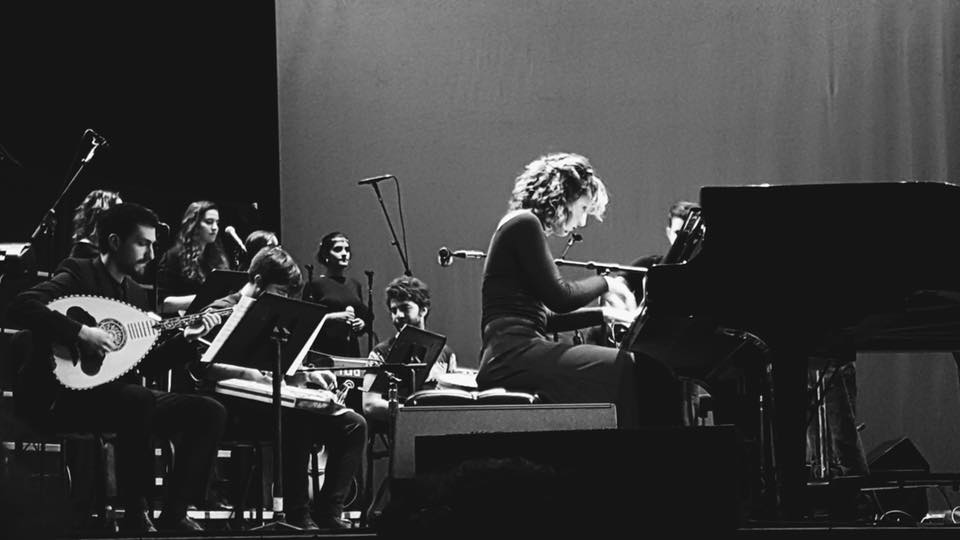
‘Opening the show for Tigran in front of students who worshiped his music and Armenians from the community I grew up in came with both pressure and pride.’
The next two days were filled with a recording session and a master class. We recorded one of Tigran’s pieces in Berklee’s professional studios on campus. And on March 8, we had a room overflowing with students trying to squeeze themselves in to see Tigran speaking to students. Four student groups performed for him, as he listened and gave feedback. It ended with Tigran on the piano jamming with the current Middle Eastern Fusion Ensemble. Students were beyond excited. It was surreal to experience.
While the concert was long, the night felt like it was over in a matter of seconds. Opening the show for Tigran in front of students who worshiped his music and Armenians from the community I grew up in came with both pressure and pride.
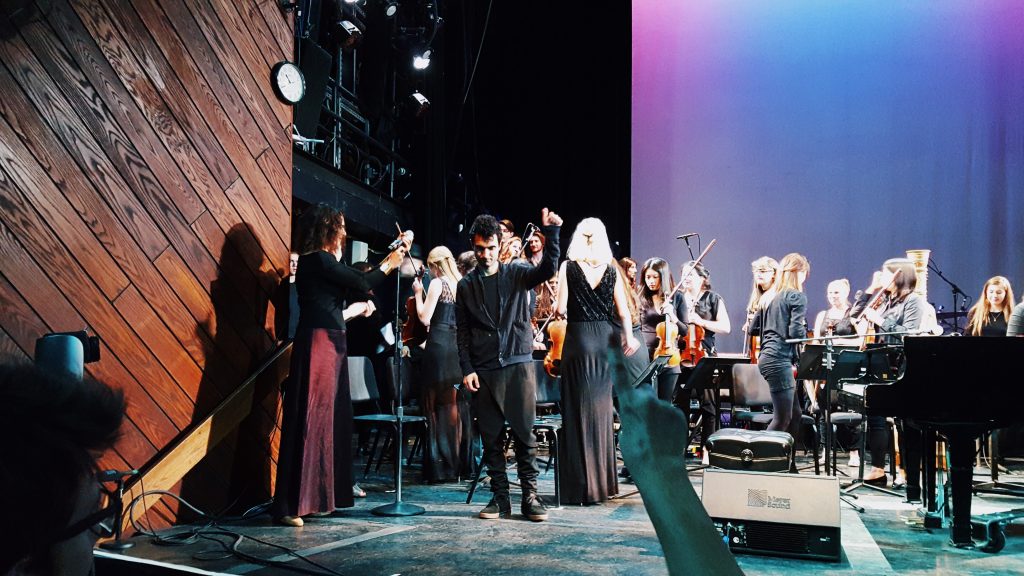
‘My peers rocking alongside Tigran, playing music I listen to almost daily, with the man who created it.’ (Photo: Stephen Demirjian)
And walking offstage afterwards, knowing just what the audience was about to experience, was exhilarating. Watching the night unfold from the side of the stage will be something I remember for the rest of my life. My peers rocking alongside Tigran, playing music I listen to almost daily, with the man who created it.
There is simply no way to do justice to that feeling.
Source: Armenian Weekly
Link: Pressure and Pride: Opening for Tigran Hamasyan

